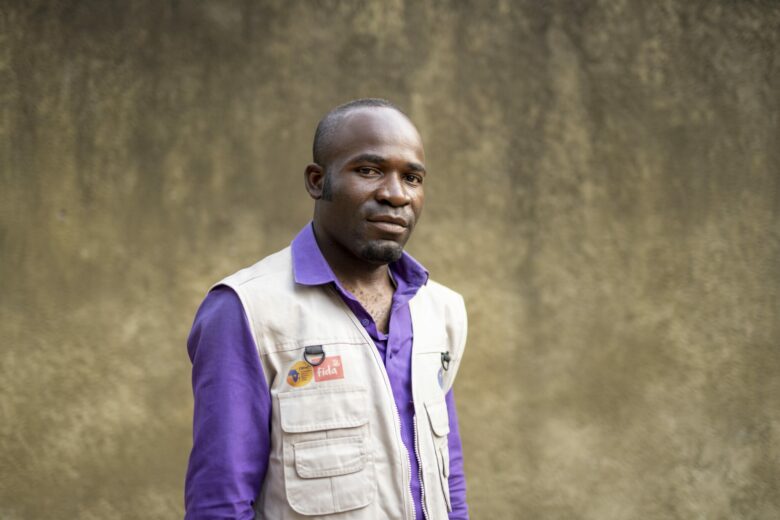“I was born very underweight”: Honore, who received help as a child, explains how he now helps others with health problems

Congolese Honore Msambya Feke works in a joint project between Fida and the Pentecostal church CEPAC. He explains why he chose to specialise in healthcare administration in his studies, what health challenges exist in the Democratic Republic of Congo (DRC) and how they can be addressed.
“My name is Honore Msambya Feke and I greet you from the Congo, from the town of Baraka. This is a beautiful, green region on the shores of the great Lake Tanganyika.
When I was born, I was a very underweight baby. Fortunately, my family received help and support. This experience has stayed with me and in a way determined my career choice and the direction of my life. I ended up studying medicine, specialising in healthcare administration. I realised that in this way I am able to help those who need support with the challenges of their lives.
I am currently working in a cooperation project between Fida and the CEPAC Church. I am the coordinator of health activities in the Baraka region. We are working with vulnerable communities to improve their health. By vulnerable communities, I mean internal displaced persons (which means refugees within their own country), people with disabilities or other discriminated and even forgotten communities. I don’t work at a health centre myself, my job is to support the skills of the staff in the different centres. I help them learn how to better serve the people in these areas.
I firmly believe that there is hope and there are opportunities for change
In our culture, it is very common for families to be large. Family planning is not necessarily considered good and various contraceptive methods are considered dangerous and harmful to health. Unfortunately, some health professionals think the same way. That’s why we need to educate them and start a conversation about these issues.
The high birth rate negatively affects the health of mothers and children. Population growth also increases the challenges of food and access to clean water. Large family sizes affect the financial situation of families and the adequacy of education systems.
I firmly believe that there is hope and opportunities for change in people’s everyday lives. Just being able to discuss these difficult issues in our communities is a big step forward. People are happy to come to various trainings where we can discuss family planning issues. What makes me particularly happy about my work is that people don’t just want training. They really want to make a difference in their daily lives, and they are looking for practical ways to do so through the knowledge brought by the trainings.
The key to working together is getting to know each other, sharing our daily lives and listening to each other
The dream for the future – but also a very strong need – is to bring together different actors who can reach communities as widely as possible. Secondly, it is also important to strengthen cooperation between different actors.
The key to working together is getting to know each other, sharing our daily lives and listening to each other. This is how we build trust on both sides. The people we work with must feel that we are on their side. It all starts with an encounter. ”
Blog author: Honore Msambya Feke
The author lives in the Democratic Republic of the Congo. He works in the cooperation project between Fida and the CEPAC Pentecostal Church related to improve health services.
